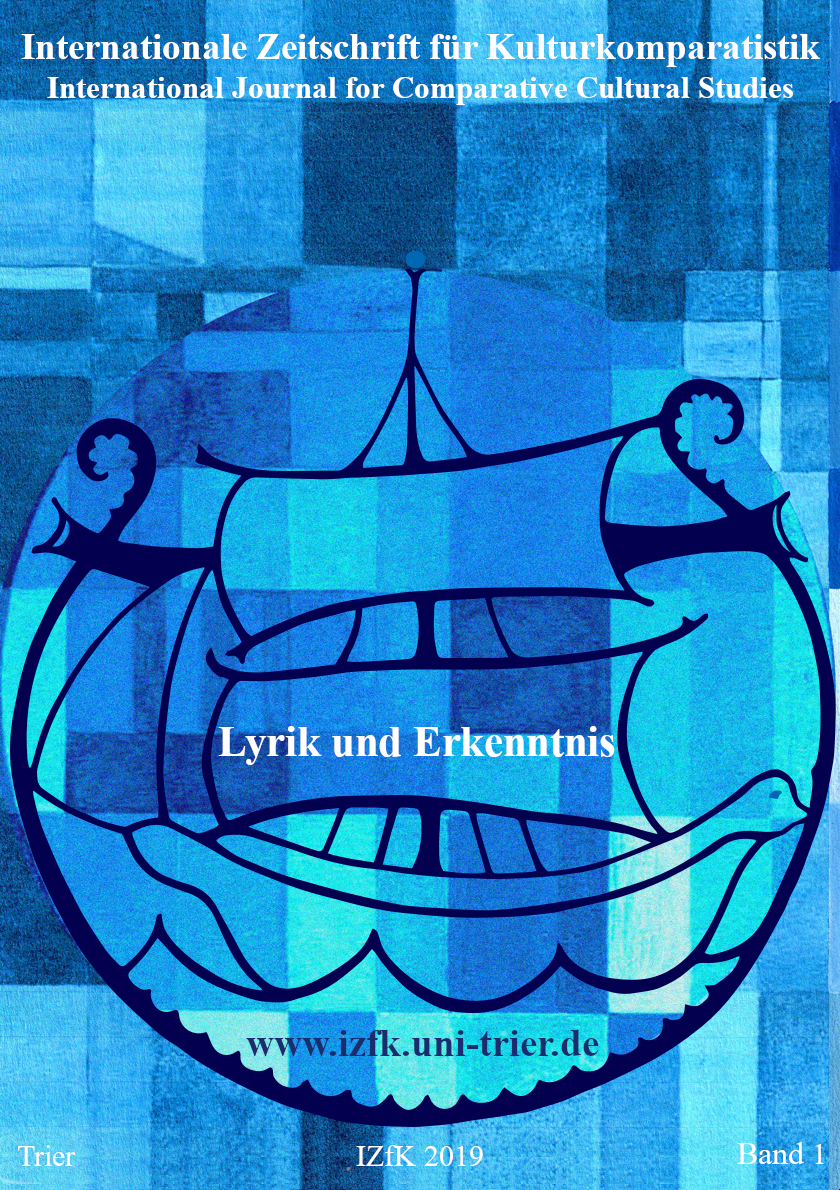“But now I know”: Erkenntnisprozesse als mentale Ereignisse in zeitgenössischer englischer Lyrik
Hauptsächlicher Artikelinhalt
Abstract
On account of its constitution as a temporally organized sequence of verbal utterances, typically presented from a speaker’s subjective perspective, lyric poetry is particularly suited to simulate mental processes and thereby mediate forms of cognition and insight. Indeed, the presentation of cognitive phenomena can be considered one of the prime functions of lyric poems throughout the history of poetry. For the analysis of such processes in poems a transgeneric narratological approach is here proposed, which is ultimately based on the anthropological fact that human existence is inescapably subject to temporality and change and that individuals are therefore permanently concerned with understanding, structuring, planning or preventing change. For this purpose, they employ the basic operation of narration in their communication both with others and themselves as well as in
the production and reception of the various artistic genres, not only in fiction, drama and film, but also in lyric poetry. Poems employ narrative elements in a variety of modes which are specific to poetry, such as psycho-narration, mini-narratives, condensed, implicit or metaphorical narratives. A central device for structuring and interpreting a narrative sequence is the event, a transformation or decisive turn in the chain of changes, which then constitutes the moment of cognition or insight in the poem. The presentation of such a mental transformation from the speaker’s limited subjective perspective allows for a critical assessment of status and motivation of the process of cognition on the part of the reader. This transgeneric narratological approach to the cognitive dimension of lyric poetry will first be demonstrated with the analysis of an older prototypical example, W. B. Yeats’s “The Second Coming”, and then applied to three recent, complex British-Irish poems, Eavan Boland’s “The Making of an Irish Goddess”, Kathleen Jamie’s “The Way We Live” and Paul Muldoon’s “Why Brownlee Left”, exemplifying the range of variation in which lyric poetry can perform and mediate mental processes of cognition.

